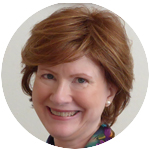
Maureen Pratt
The ongoing pandemic has exposed significant disparities in the availability and quality of health care throughout the world and, on a personal level, has highlighted the often-tough decisions people face about their or their loved ones’ care, especially with regard to end-of-life considerations.
In the midst of these very real-world challenges are important ethical and moral considerations, and it is into this milieu that the Catholic medical ethicist seeks to bring moral understanding and clarity.
But, at a time when the need for ethics to inform health care has never been greater, some statistics reveal a stark reality: The number of trained Catholic medical ethicists is decreasing.
[hotblock]
Nathaniel Blanton Hibner, director of ethics for the Catholic Health Association said, “The most recent survey data from two years ago found that there are about 80-90 ethicists across the United States, mostly employed by a health care facility or organization. The survey also showed that, among these, one-third plans to retire in the next five years, and another third plans to retire in six to 10 years.”
This sharp decline in the number of medical ethicists will have significant impacts on many areas where modern medicine and Christian living intersect. Medical ethicists work in a variety of places, including hospitals, hospital systems, research and public policy development.
They might assist patients, their families and physicians in individual cases, such as with advanced care planning, or work at the organizational level of Catholic health care institutions, where mission (how the institution reflects its Catholic values in the work it does within its buildings and in the community) is critical.
Genetics counseling, end-of-life issues and development and testing of new drugs are some of the areas in the field of health care that are rapidly growing, and often have serious moral implications that can benefit from the input of a trained Christian medical ethicist.
“We are trying to promote the values that we see inherent within faith-based health care,” said Hibner. “We’re helping to navigate those difficult decisions in light of the values that we hold.”
In the past, most medical ethicists have come from a variety of backgrounds, such as law, medicine, philosophy or theology, but there have been few formal training programs.
Today, people entering the field may still have had entirely different first careers, but experts advise that the growing ethical complexities in health care and society at large make specific training and study a must.
A master’s degree or doctorate in theology with a focus in ethics is a helpful course to take, particularly if it offers clinical experience, where what is learned can meet what is happening in today’s world of health care.
With a first doctorate in genetics, Paul Scherz, associate professor of moral theology at The Catholic University of America, is an example of someone who chose medical ethics as a second career.
Scherz said, “There were all kinds of ethical debates in the first (area). I wanted to bring the theological end into these problems and use my expertise to engage in the debates.”
The field of Catholic medical ethics is not easy, said Scherz. “Moral theology questions are tough questions.”
But the ability to combine ethics, faith and a heart for health care can be powerful.
“Catholic health care is a ministry, too,” said Scherz. “It’s not just a delivery of medical services.”
Information about programs and careers in Catholic health care ethics is available at https://www.chausa.org/ethics/overview. A collaboration between the CHA, The Catholic University of America and Georgetown University offers a certificate and a master’s degree in clinical Catholic health care ethics, entirely online: https://trs.catholic.edu/academics/online/certificate-in-catholic-clinical-ethics/index.html.
***
Pratt’s website is www.maureenpratt.com.
PREVIOUS: Your World Mission Sunday gift will build the church
NEXT: Powers of the soul can counter social media engineering



Share this story